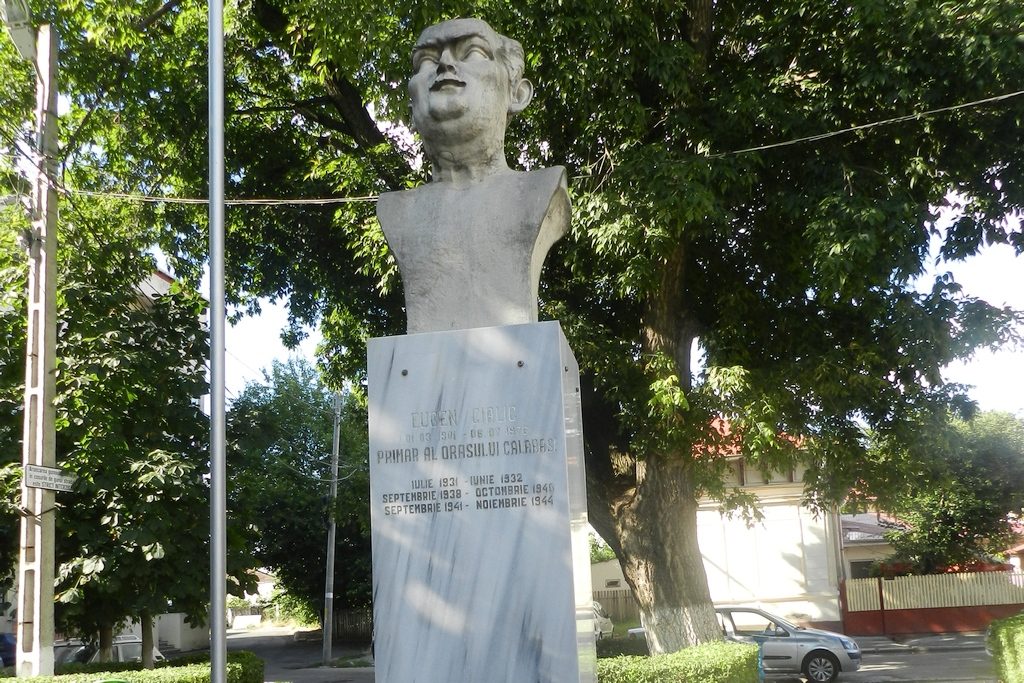

The bust of Eugen Cialîc comes to remind the people of the city of Călărași, about the efforts made by the mayor who run for three mandates the city, between July 1931 – June 1932, September 1938 – October 1940 and September 1941 – November 1944.
The emblematic personality of Călărași, which he led with hands of “steel”, Eugen Cialîc gained the repute of having transformed the city, in the inter – war years, in the cultural capital of the south – west of Romania. Lawyer, writer, trade journalist, has extended the electrical and sewage network, has paved boulevard, has built a maternity, a public bath and has made operational a market. Also, he drafted the first development plant of the city on a period of 5 years, but, which couldn’t be realized because of the change of the political regime from Romania.
In the year 1923, after finishing the Faculty of Law, when he decided to profess as lawyer in the city situated on the shore of Borcea, Cialîc became a man of the place. Practically, since then, for 22 years, he starts a fulminating career in almost all the areas at Călărași: cultural, artistic and urbanistic.
Between the period of 1925 – 1940, the entire cultural activity from Călărași gravitated around Eugen Cialîc. For example, in 1937, the Congress of the General Federation of the Province Press has been developed at Călărași, gathering at which there were present all the journalists from the Great Romania. Also named a cultural mayor, Eugen Cialîc, has the quality of founding the newspaper ”Pământul”, which appeared in 1932, and until 1944, when the lawyer was arrested, 252 editions saw the light of the print.
He is accused by the authorities for sympathy for the nationalistic ideas of his good friends, Nicolae Iorga and Constanting Argetoianu. The paradox is the fact that Eugen Cialîc was never a part of a political party. The plans of Eugen Cialîc for developing the town are suddenly stopped in the year 1944 when he is arrested and sent to the work camp from Caracal. After the detention period from the camp of Caracal, he found himself suffering from diabetes. Also, he was permanently checked by the Security, being accused of sustaining Hitler in the newspaper he owned.
After the reinstatement, he activated in the Popular University of Bucharest, conferencing at a national level about Romania’s great writers. He died at the 6th of June 1976 in Bucharest.
